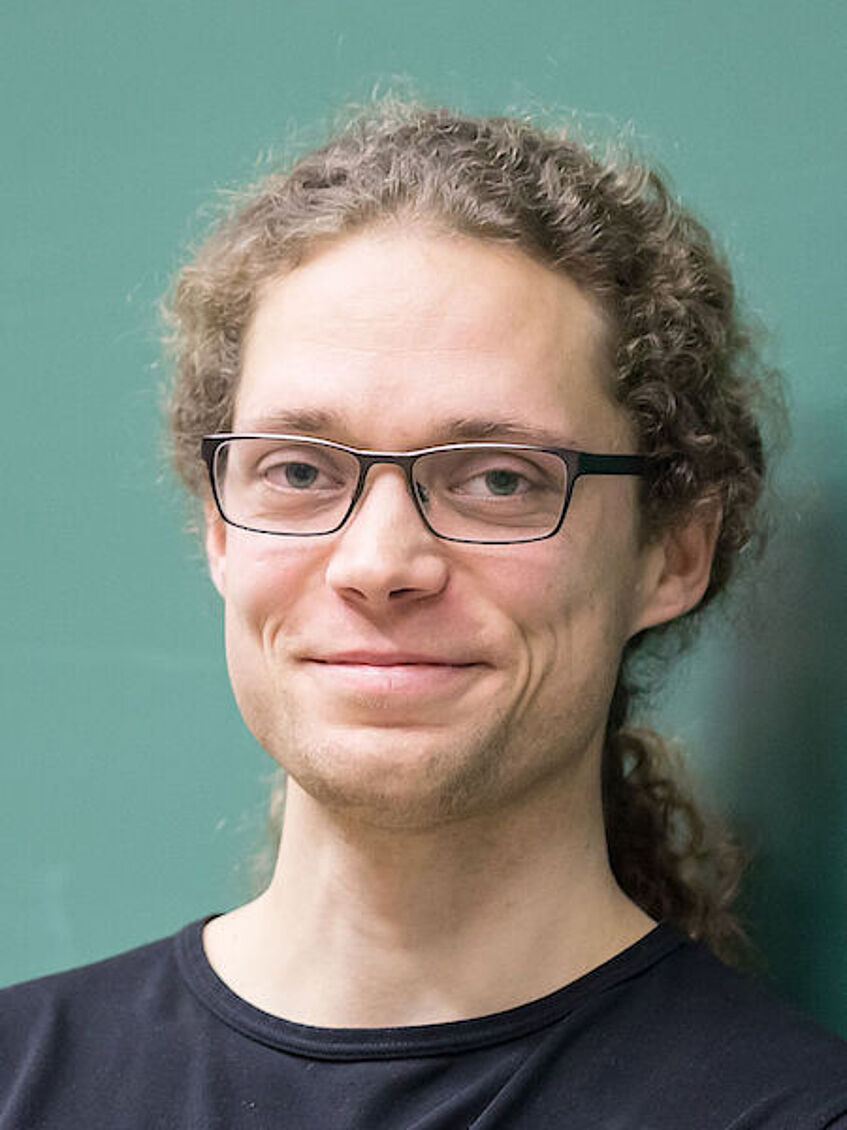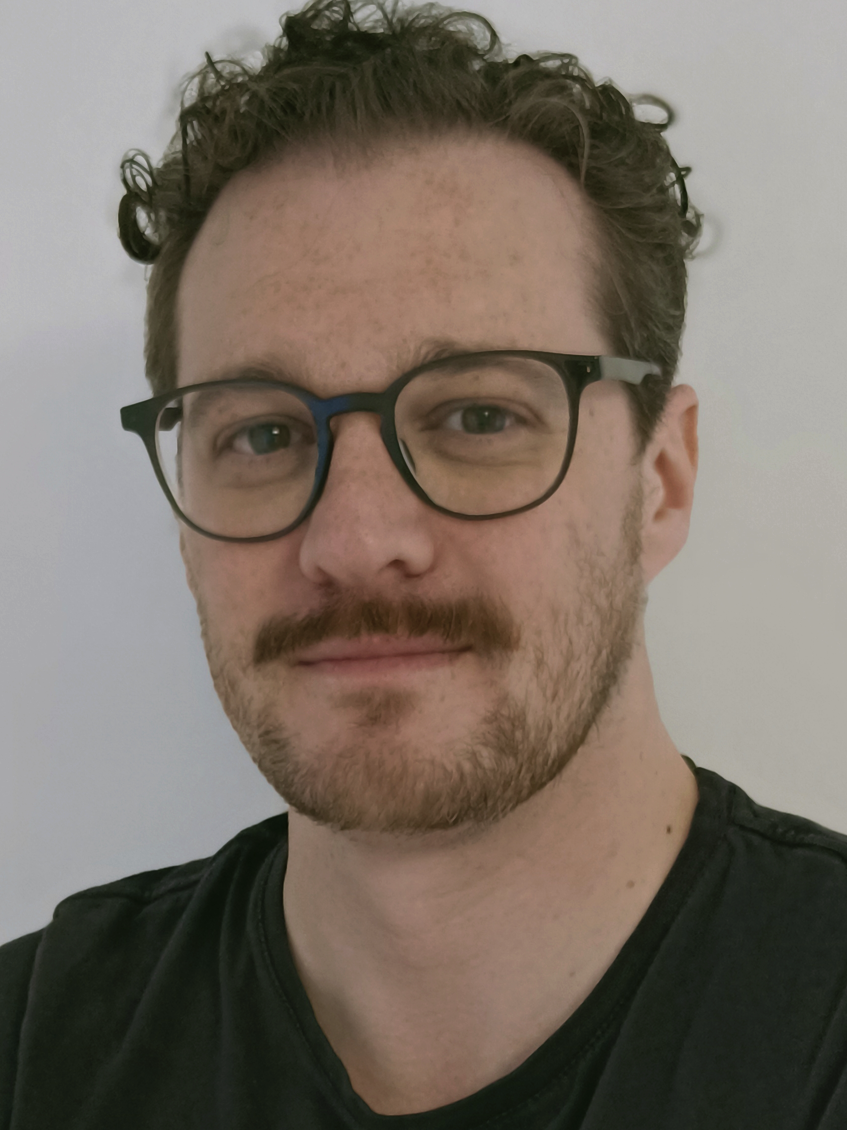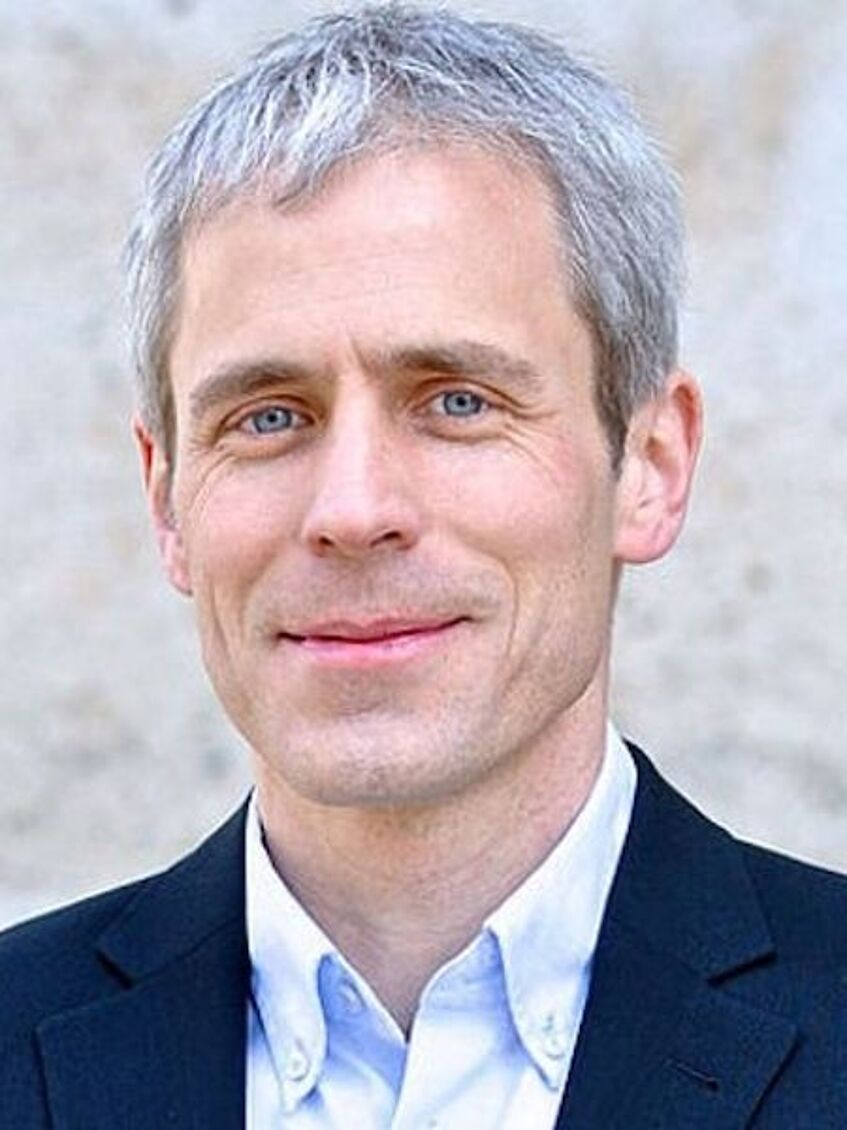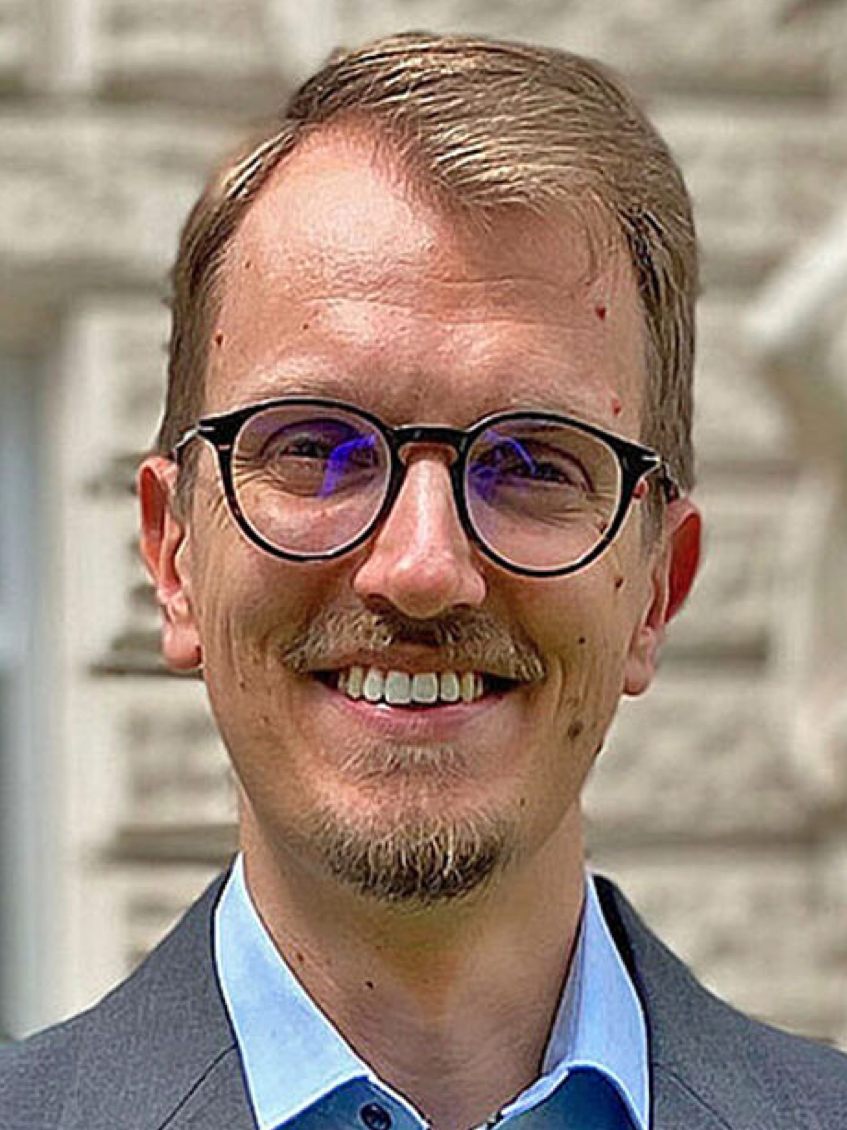Master thesis
For students who would like to write a master thesis in our research group, we recommend very good knowledge in special and general relativity (courses relativity and cosmology 1 and 2) as well as in quantum field theory (courses Einführung in die Teilchenphysik and Teilchenphysik: Standard-Modell und Phänomenologie). It is also advisable to have basic knowledge in differential geometry and group theory.
Master supervisors
Here you can find an overlook of all members of the research group interested in supervising master theses.
Nils Carqueville

Nils Carqueville
My work in mathematical physics often uses methods and ideas from algebra, category theory and topology -- in particular where they come together. Some background in quantum physics as well as basic algebra or category theory are useful prerequisites to work with me on a Master project. Specific topic areas include topological quantum field theory (TQFT), state sum models, topological sigma models, relations to topological phases, and applied higher category theory. You may wish to consult these introductory lecture notes on TQFT, or these lecture notes on 2-dimensional defect TQFT, and I'd be happy to give further references if you contact me.
Stefan Fredenhagen
Topics of master projects can be in the area of higher-spin gravity theories or conformal field theories. Higher-spin gravity is a generalisation of gravity where additional higher-spin gauge fields are introduced. Such models are expected to appear in a tensionless limit of string theory. For a basic introduction to the topic see e.g. here.
Conformal field theories are of wide interest in theoretical physics, ranging from condensed matter physics to string theory. In particular they occur as world-sheet theories of strings and as holographic duals of gravitational theories including higher-spin gravity and string theory. For an introduction to the topic see e.g. here.
Stefan Prohazka

Stefan Prohazka
My research focuses on the mathematical and physical aspects of symmetries, exploring their underlying structures and their far-reaching implications across various fields.
This encompasses the classification and gauging of (exotic) spacetime symmetries as well as the study of relation between asymptotic symmetries, memory effects and soft theorems. Recently, much of my work have been focused on carrollian symmetries and their relation to flat space holography and on theories with dipole symmetries which lead to novel particles ("fractons"). For more information about my research, please visit my site.
Marcus Sperling
My work delves into the fundamental aspects of quantum field theories (QFTs), focusing on symmetries and vacua. By exploring supersymmetric theories as a laboratory for QFTS, we uncover a rich dialogue between geometry, algebra, and physics. This fusion not only leverages modern mathematics to unlock precise insights into complex, strongly coupled, or even non-Lagrangian theories, but also paves new ways to illuminate mathematics through the lens of physics.
A basic understanding of quantum physics, classical field theory, algebra, group and representation theory, and geometry will greatly benefit those looking to collaborate on a Master's project with me. Our specific areas of interest include supersymmetric quantum field theories, moduli spaces of vacua, and the exploration of global symmetries and defects.
I’m open to various project ideas rather than sticking to predetermined ones. If this sparks your interest, I warmly invite you to reach out. Let’s have a conversation and discover how we can collaborate on groundbreaking research together.
Harold Steinacker

Harold Steinacker
My primary area of interest is "Quantum Geometry" as an approach to quantum gravity. This involves the mathematical description of quantized spaces and geometrical structures, in analogy to Quantum Mechanics. The main focus is on those aspects which are relevant to Matrix Models, which are candidates for a theory of quantum gravity, and naturally lead to such mathematical structures. There are many challenging open research problems, which require some familiarity with basic differential geometry, and often (but not always) Lie group techniques.
Topics suitable for a Master's thesis include a somewhat numerically oriented project:
- Construct a matrix configuration which describes a cosmological space-time with Big Bang and Big Bounce within Matrix Theory, based on deformed oscillator algebras (this is a challenging and rewarding project for mathematically ambitious students, and requires also modest computer skills (Mathematica))
For more information about my research, please visit my site.


